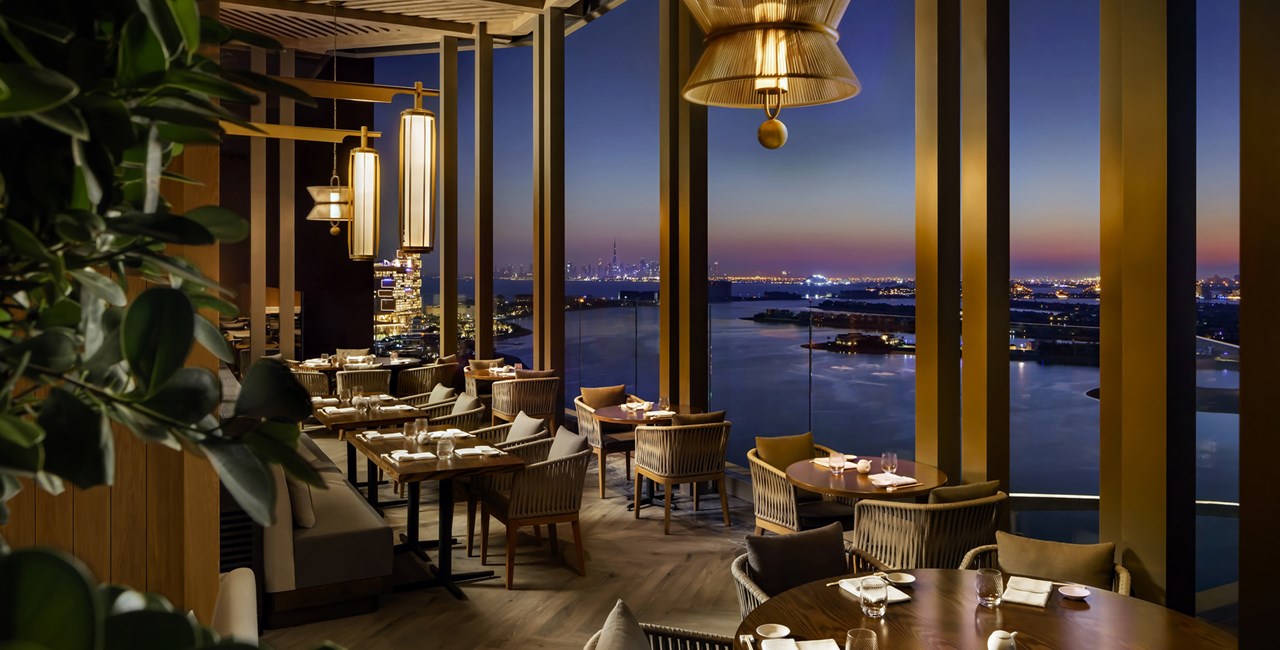Operational challenges
The new location of Nobu was designed to feature five dining areas, including an exclusive thirteen-seat sushi bar as well as an expansive terrace with a bar and lounge area, offering guests unforgettable views of The Palm and the Dubai skyline.
The project needed to be delivered in a live, hotel environment and required extensive structural modifications, new infrastructure to support core services, and a full kitchen retrofit.
Deliverables included the building of a framed glass façade, upgraded roofing system, balustrade works, and the conversion of two existing terraces – all of which required execution at height and while Atlantis, The Palm remained open and in operation to guests.
The area spans almost 10,000 square feet, stretching out to form the bridge that connects the two iconic towers of Atlantis, The Palm.
Costing with bespoke benchmarking data
We helped Atlantis Dubai by managing the project and costs throughout the project lifecycle, including cost estimates for bespoke items such as the façade modification works and infrastructure tie-ins, which were not suited to a typical restaurant fit-out project.
Our accurate cost data, substantiated with market benchmarking, allowed the client to make key investment decisions throughout the duration of the project.
We also conducted a tender process for the appointment of a main contractor, which required multiple rounds of tender submissions to ensure the returns were accurately priced and that the best–value proposition was obtained for the client.
Delivering best in class
Nobu Dubai at Atlantis, The Palm was completed on schedule and within budget, and successfully opened on 23 January 2023. Bringing Chef Nobu Matsuhisa’s redefined Japanese cuisine to Dubai, the restaurant supports the government’s strides to position gastronomy as a major piece of the city’s development plans.
Its new location ensures the 465-cover restaurant now benefits from copious quantities of natural light, lofty ceilings, generously expansive spaces and amazing views.
By streamlining the kitchen design and using more efficient equipment, all the while maintaining the functionality required to deliver a five-star guest experience, the project team was able to bring about a reduction in the synthetic natural gas (SNG) consumption by 1000cm3 per month in comparison to the former Nobu venue.



